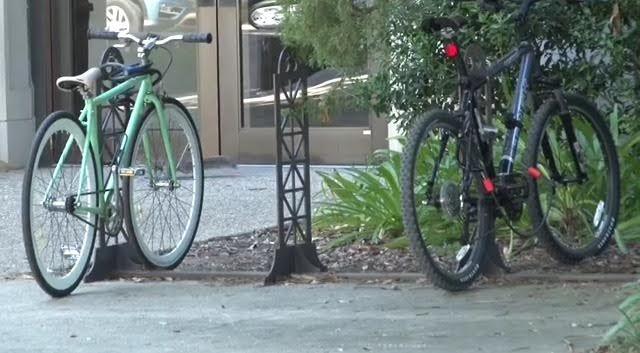A Baton Rouge bike share system could arrive as early as next year, as the Downtown Development District continues talks with local agencies and University administrators about implementing the project, which was proposed by the Environmental Protection Agency in September.
A bike share, according to the EPA’s report, would be a network of bicycles distributed around the city from hubs to encourage non-motorized trips.
The EPA pointed to Baton Rouge’s nationally ranked congestion levels and a 2014 survey ranking it the most obese metro area in the country as compelling reasons for a bike share plan.
But Baton Rouge Area Foundation’s CityStats, an annual report on Baton Rouge’s health, transportation, and other “quality of life” indicators, suggested most residents would not use a bike share.
When asked if they would use a bike share, 65 percent of those surveyed said no, and 32 percent said yes. Of those who said yes, 80 percent would want bike hubs on campus.
CityStats also reported 61 percent of those surveyed would not ride a bike to work if bike paths or lanes were on their route.
A host of factors led the Downtown Development District and other agencies to go after the bike share plan, and stakeholders are working with one another to develop a plan to implement it in the next six months, said Development Project Director Whitney Cooper.
“We have the mayor’s healthy city initiative,” Cooper said. “So that’s been a key component, and that part of his office has been heavily involved. And of course there’s the environmental issues, it is the EPA, so looking holistically all around tourism, recreation, health, air quality, all that.”
The next step in the process, she said, is to identify areas to implement bike share hubs and routes.
The EPA acknowledged some possible setbacks to the plan, citing lack of credit card availability for low-income residents and lack of infrastructure. The Downtown Development District is continuing its work on bike paths throughout downtown, and they will eventually connect as far south as the LSU lakes.
Funding is another caveat to the plan as state government finishes wrestling with a $960 million budget shortage for the fiscal year.
Cooper said the state’s fiscal issues are affecting the conversation on how to fund the project, but the first step is creating a more intricate plan of where and how many stations there will be, in order to find out how much it will cost.
The agencies behind the project, which include the Baton Rouge Area Foundation, LSU and Southern University, have looked at other similar sized cities, like Ann Arbor, Michigan and Boulder, Colorado, which have bike share plans, for guidance. Bike share systems in other cities are usually funded by corporate sponsors, city government, non-profits, or transportation departments.
Cooper said with everything going as planned, the bike share will be up and running in about a year.
“There’s a lot of people involved that are interested in doing it,” she said. “There’s a lot of push behind it.”
Baton Rouge planning to implement bike share program
March 8, 2016





